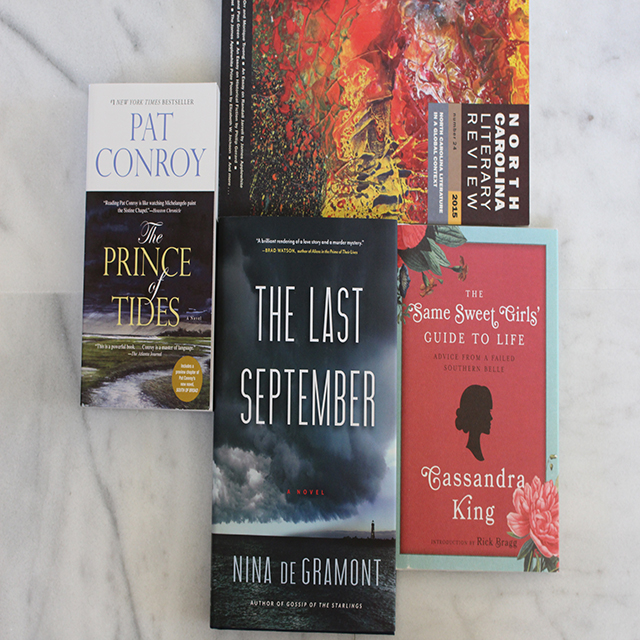Bookmarks Festival 2015: 4 Tips On How To Get Published
 I get as excited about the Bookmarks Festival in Winston-Salem as I did as a kid when the Scholastic book fair would come to my school. One of my life goals is to go from regular attendee to featured author and speaker at this festival, and every year that I go to this festival ( this is my third year in a row), I learn how to get closer to achieving this dream.
I get as excited about the Bookmarks Festival in Winston-Salem as I did as a kid when the Scholastic book fair would come to my school. One of my life goals is to go from regular attendee to featured author and speaker at this festival, and every year that I go to this festival ( this is my third year in a row), I learn how to get closer to achieving this dream.
Here are my takeaways from a panel discussion I attended called Journey of a Book with author Nina de Gramont, publicist Emma Boyer, and editor Kathy Pories, all from Algonquin Books:
- The first 50 pages of a manuscript determine if you get a deal.This is probably pretty obvious, but it helped me to have to have an editor from a major publisher (Algonquin) reiterate this. I'm currently about 18 pages into the manuscript for my first novel, and I must say that I have a bad habit of editing myself as I write especially since I am working within that 50 page window. And that's when I try to remember this next piece of advice...
- Don't rush it. I've always had this age in my mind that is somewhat of a deadline by which I should have published my first book. Thirty, that age that we look toward as kids as the point when our lives suddenly reach Happily Ever After status, was my first deadline. Now I've passed 30 by three years, and my novel is still a work in progress, which makes me anxious at times. I'm not sure why I'm caught up with the age at which I publish my first book, but I'd now rather create the exact piece of work I've always dreamed of writing at 40 than to have published anything just to say that I got published before or at 30.
- Try submitting shorter works to literary magazines before aiming for the book deal. Baby steps are still steps. Submitting shorter work, such as short stories or short essays, allows you to become accustomed to the editorial process and demonstrates that you have a level of success with being published. This, of course, makes a bigger publisher more willing to consider publishing a larger work from you. Just make sure the publications you submit work to reflect the type of writing you want to be known for.
- Editors don't necessarily want a writer who follows directions. They want a writer who will use his or her creativity to address issues that the editor highlights in the manuscript. Algonquin Editor Kathy Pories said "Really, what an editor is, is your ideal reader,". Editing is the part of the writing process that many writers wish they could skip. It's hard to watch your "baby" that you've worked on for months or years get picked apart, but editing is what sculpts and refines your work into its best self. I guess writers have two main reactions to edits: either they reject them without considering them because they take them personally or they blindly implement them because they think speaking up about changes they are uncomfortable with will ruin their opportunity to be published. Pories seems to suggest that the middle ground between these two reactions is ideal for success as a writer. That is, consider your relationship with your editor as an ongoing conversation. Your editor points out areas where your baby can become stronger, but you determine what direction your story ultimately goes. Editors like to be wowed, so take the edits they give you and give them back something that they aren't expecting...in a good way, of course!